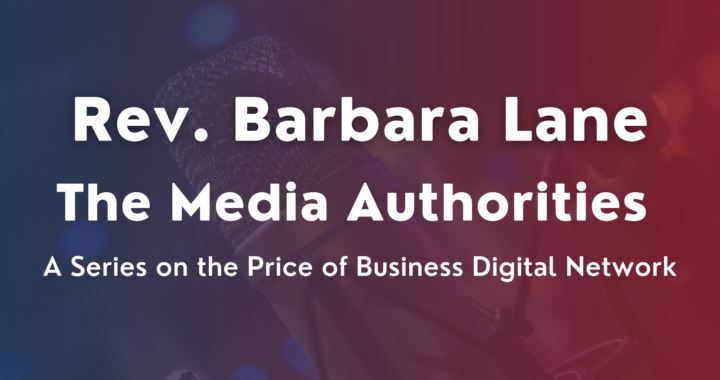Power, Potential, Delay: What’s Holding Back Women of Color Entrepreneurs?

Surging onto the entrepreneurial scene, Black women represent the most rapidly expanding group of business owners in the U.S., commanding an impressive 2.7 million enterprises across the nation. Yet, despite this dynamic growth, they are persistently confronted by an unequal share of financial challenges.
Black women are leading the charge in entrepreneurship, with a staggering 50% growth in business ownership between 2014 and 2019. This surge outranked any other female demographic, marking Black women as formidable players in the business world. They made up a substantial 42% of all new women-led businesses during this period.
Moreover, Black women weren’t just starting businesses. They were leading them. An impressive 36% of all Black employers were women.
But what’s driving this surge in Black female entrepreneurship? The reasons are as varied as they are compelling. For some, it’s the quest for a reliable income source. For others, it’s the pursuit of a lifelong dream. Simply put, Black women are staking their claim in the business landscape, fueled by a blend of ambition, practicality, and passion.
Navigating the business world is no easy feat, especially for Black women. Their journey is often marked with unique hurdles, unfairly tilting the scales of success.
Despite a commendable spirit of entrepreneurship among Black women, the reality is stark. Only a mere 3% of them manage to helm mature businesses. It’s a sobering statistic, considering that a business is generally considered mature once it crosses the five-year mark. The disparity is clear and calls for a closer look.
Moreover, Black female founders earn an average revenue of just $24,000, compared to $142,900 among all women-owned businesses
Why does this disparity exist? The answer could lie in businesses launched. A significant 61% of Black women entrepreneur’s venture into retail/wholesale, health, or education — sectors notorious for their cut-throat competition and slim profit margins. This figure overshadows those of their White counterparts, with only 47% of White women and a mere 32% of White men entrepreneurs dipping their toes into these challenging waters. The saturated nature of these sectors makes maintaining businesses over time an uphill task.
A significant barrier could be inadequate access to capital. Strikingly, 61% of Black women entrepreneurs are bootstrapping their startups. What’s more, only 29% of these women come from households earning above $75,000. Meanwhile, a contrasting 52% of White men entrepreneurs hail from such income brackets. The struggle to secure startup funds is evident. The entrepreneurial landscape seems to be tipping the scales away from Black women.
Black women entrepreneurs are choosing to self-fund, not because it’s an easy route, but because they face a tougher battle in securing external funding. The stark reality is that Black business owners are rejected at a rate three times higher than their White counterparts. Indeed, access to credit has emerged as a significant hurdle. Moreover, a meagre 2% of venture capital funding is allocated to U.S. female-only founder teams.
Black women require access to sustainable funding resources and effective strategies to propel their businesses forward. However, this hinges on the finance community’s acknowledgment of the persistent biases in investment assessment. These biases have placed Black women in a disadvantageous position for far too long. Understanding the inherent value and benefits of businesses led by Black women is also crucial. From this understanding, we can then reevaluate and revamp the existing systems into a more equitable one.
So who is getting this done? JPMorgan Chase & Co. Chase is acting. I have no dealings with JPMorgan as a banking client or as a leadership coach. But I want to commend their efforts. They’ve pledged a staggering $30 billion over the next half-decade to champion racial equality. Their mission? To create economic opportunities in communities that have been overlooked and underserved – particularly those that are Black and Latina.
But how will they do it? Through increased lending and technical assistance. This isn’t just about providing funds. It’s about offering the tools and support needed to truly thrive.
The objective? To empower women, but more importantly to Chase is to secure the future. The question is are they greedy or racist? Racist organizations overlook the stats on the growing number of people of color available to be part of the workforce and wealth building. They are focused on white supremacy. A greedy company see the potential and seizes the opportunity to garner good will and ensure their existence. It is alright if the benefactor gets something out of it. We want the training and the capital.
My prayer is that other financial institutions realized their financial future is dependent on women of color thriving. Once we get our sea legs, we can kick the door open and keep it open for women today and generations to come.
Joia Jefferson Nuri has a keen intuition for helping women of color executives achieve their goals. Her training as a coach in executive Leadership and public speaking has sharpened her ability to understand and support clients clarify their objectives. Joia helps her clients build a toolkit to battle their destructive inner critic, allowing them to rise from their zone of excellence to their zone of genius. Trained in the rubric of positive psychology, her techniques put clients in touch with their inner critic so they can quiet it. As a leadership coach, her ultimate goal is to help clients understand their worth, maximize their abilities, and live the lives they see for themselves. Joia’s signature executive team-building and inner critic workshops assist companies, social change groups, and women’s organizations to maximize their Leadership while aligning their values and practices.
Before coaching, she was a human rights communication strategist for Harry Belafonte and Danny Glover, TransAfrica, The Institute for Policy Studies, and Truly Living Well Center for Urban Agriculture. As a communication strategist, she testified before Congress on Haiti Relief and co-wrote Congressional Testimony for Danny Glover. Joia Nuri has co-written, edited, and coached 14 TEDx Talks, including one for herself. She was honored to be invited to deliver the keynote address in Vienna, Austria, before the 53 nations of the Organization for Security and Cooperation in Europe (OSCE).
Her communications career at NBC News was one of the first women hired as a technician. Her move to CBS News made her the first Black woman to serve as Technical Director of the CBS Evening News and Face The Nation. She also worked as a senior producer at NPR, PBS, and C-SPAN.
Her public speaking training began with her father, a classical baritone. Later, her training continued with Shakespearean actress Naomi Jacobson. Joia has performed voiceovers for documentaries on Civil Rights icon John Lewis, ballet dancer Misty Copeland, filmmaker Ava Duverney, and Secretary of State Hilary Clinton.
Joia Nuri’s early career was in network newsrooms, where she was the first Black woman to be Technical Director of the CBS Evening News and Face the Nation. She also worked as a senior producer at PBS, NPR, and C-Span.She applies her experience, intuition, and training to help each client achieve true Leadership. Today, she is coaching government, education, corporations, and philanthropy leaders.
Awards & Accomplishments:
- Emmy Award, WRC-TV
- Corporation for Public Broadcasting Award for Programming Excellence
- Spirit Award, Pacifica Radio Network
- Judge for the Robert F. Kennedy Memorial Human Rights Awards
- Delivered Keynote Address before the OSCE in Vienna, Austria
- TEDx Talk, Wilmington
- Event Strategist, Obama Inaugural Galas, 2009 & 2013
Website: https://inthepubliceyecoaching.com/
In The Public Eye Coaching https://inthepubliceyecoaching.com/
LinkedIn: https://www.linkedin.com/in/joiajeffersonnuri/
Twitter/X: @joianuripcc



 Practical Recommendations for Losing Weight
Practical Recommendations for Losing Weight  Take a Breath
Take a Breath  Can Stories Change the World?
Can Stories Change the World?  Enhance Your Identity When Caregiving – Grow Stronger, Not Embittered
Enhance Your Identity When Caregiving – Grow Stronger, Not Embittered  Executive Perspectives on Staying Focused Amid Political Noise
Executive Perspectives on Staying Focused Amid Political Noise  Your Unbreakable Spirit
Your Unbreakable Spirit